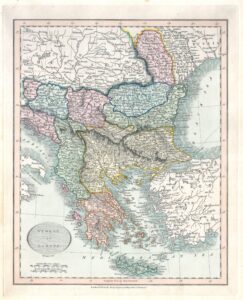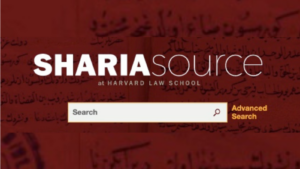
 |
Roundtable on Transformation and Adaptation of Ottoman Land Law in 19th-Century Successor States We recently convened a Roundtable on Transformation and Adaptation of Ottoman Land Law in 19th-Century Successor States organized by PIL Research Fellow Fatma Gül Karagöz. Throughout the month of February, scholars of Islamic law and history published essays on the Islamic Law Blog on the interpretation and adaptation of Ottoman land law in the 19th century featuring case studies that focus on Greece after the War of Independence (1821-1830), the situation of Bosnia-Herzegovina, Serbia, and Bulgaria after the Berlin Treaty (1878), and processes of estate and agricultural land-privatization during a period of great transformation. Contributing scholars included Philippe Gelez (University of Sorbonne), Fatma Gül Karagöz (Harvard Law School), Evgenia Kermeli (Hacettepe University), Milena Methodieva (University of Toronto), and Jelena Radovanović (University of Münster).
|
 |
CONTENT: Ottoman Land Law One aim of SHARIAsource is to provide access to primary and secondary sources of Islamic law to support research on salient issues of Islamic law and history. We recently added two new sources on Ottoman land law translated by Professor Fatma Gül Karagöz to the portal. The first document is an Imperial Order (Gurre-i cemadeyülahire 1016) by an Ottoman Sultan on the transfer of usufruct right by tapu (title deed) of the land belonging to a lost person of whom no news was received for one year. It was decreed that the authority to confirm the ownership of land belonging to missing individuals now belonged to the Sultan. The second document details the inheritance distribution process in a court case from the Sharia Court of Antakya 1190/1776. The Court approved a transaction where a deceased individual’s assets, located in Antakya, were to be shared between his wife, residing in Aleppo, and his nephew. A proxy was appointed to oversee the sale of the inherited property, including a farm, vineyard, olive trees, and other assets, to a buyer for a specified amount. These sources highlight interpretations on inheritance and transfer of usufruct right in Ottoman land law. Check them out today!
|
 |
CONTEXT: Fellow Spotlight Our Fellow Spotlight series features interviews with current and previous Program Fellows, highlighting their work with the Program in Islamic Law, their path getting here, and the road going forward. This month we featured one of our current Research Fellows, Professor Fatma Gül Karagöz! She is an Assistant Professor of legal history at Galatasaray University’s Faculty of Law. She specializes in land law in the Ottoman Empire with a focus on the property relations on agricultural land and the land usufruct in legal theory and practice. Karagöz’ current research is based on the application of property law (land law) in the second half of 18th-century Antioch by focusing specifically on the exercise of property rights by women. After earning her MA from İhsan Doğramacı Bilkent University on the codes of the early modern Ottoman Empire and particularly on the New Code (Kanunname-i Cedid), a compilation of fatwas and codifications most likely from the last quarter of 17th century on land ownership, Fatma went on to receive her Ph.D. in Public Law from İstanbul University. To find out more about her path to becoming a scholar, her work during her time at Harvard, and what she likes to do for fun, visit our blog!
|

